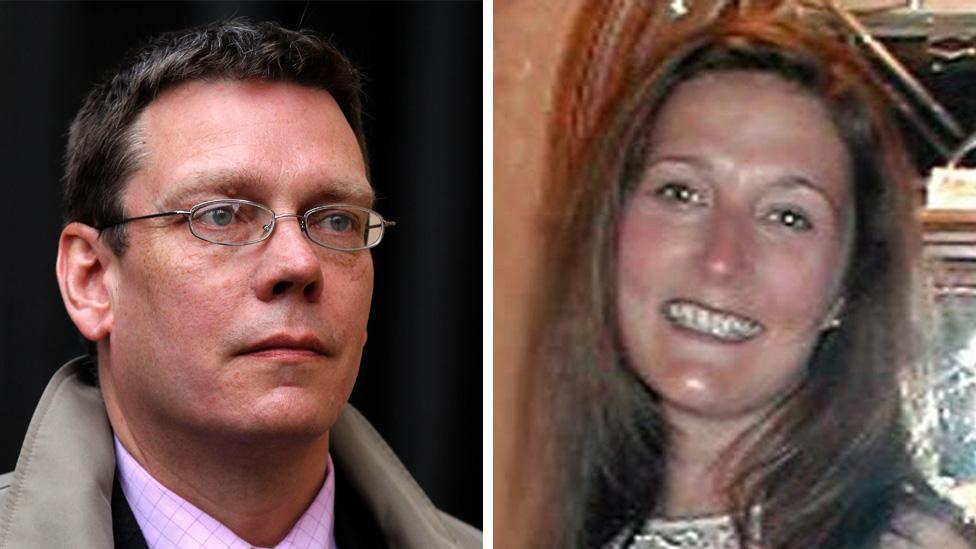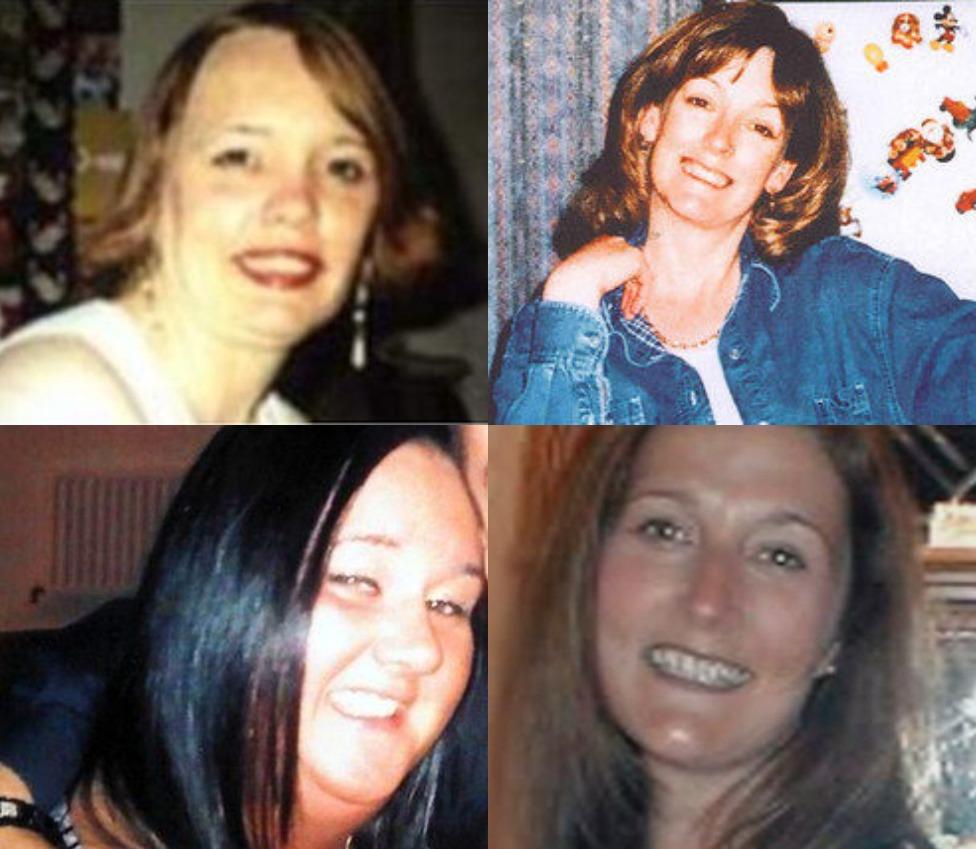'Suzanne's Law' planned in parole reforms
- Published

The body of Suzanne Pilley was never found after her murder by David Gilroy
Killers who refuse to reveal the location of their victims' remains may not be freed from jail under proposals published by the Scottish government., external
The idea is named Suzanne's Law after Suzanne Pilley, whose body is believed to have been buried in a remote part of Argyll following her murder in 2010.
David Gilroy, who was found guilty of the killing, has never said where her body could be found.
The move is one of a number of proposals to reform the parole system.
The others include the introduction of GPS technology to monitor offenders in the community which could allow exclusion zones for offenders to be more effectively enforced.

What reforms are proposed?
Allowing the Parole Board to take into account a prisoner's failure to disclose the location of a victim's body when deciding whether or not to grant parole
Victims to be allowed to attend parole hearings
Greater use of electronic tagging of prisoners released on parole, including GPS monitoring capabilities
Allowing the Parole Board to consider the safety and welfare of victims and their families
Ensuring licence conditions are fully explained to prisoners before they are released and they understand the consequences of breaching their conditions

'Fair and robust'

Helen McCourt was murdered by Ian Simms in Billinge, Merseyside, in 1988
Justice Secretary Humza Yousaf said Scotland had a fair and robust parole system but victims and their families could feel left out.
He said the proposals would give victims a greater voice in the parole process and take their safety and welfare into account.
Kate Wallace, chief executive of Victim Support Scotland, welcomed the possibility of victims having the option of being able to attend parole hearings.
Ms Wallace said bereaved families had been campaigning for the introduction of Suzanne's Law.
She said: "Families struggle to understand why somebody could be eligible for parole when they haven't disclosed where a body is."
In England, the mother of murder victim Helen McCourt has said she is "horrified" that her daughter's killer will be freed despite never revealing where his victim's body is.
Ian Simms was jailed in 1989 for murdering 22-year-old Helen and his seventh application for parole has "met the test for release".
Helen's mother Marie has been campaigning for Helen's Law and the parents of murdered Edinburgh book-keeper Suzanne Pilley also campaigned for a similar change to Scots law.

Murders without a body

Clockwise from top left: murder victims Allison McGarrigle; Arlene Fraser; Suzanne Pilley; and Lynda Spence
Allison McGarrigle - vanished in June 1997 and was formally declared dead eight years later. Paedophiles Charles O'Neill and William Lauchlan were later jailed for her murder.
Arlene Fraser - disappeared from the family home in Smith Street, Elgin, Moray, on 28 April, 1998. Her husband Nat was found guilty of her murder after a second trial in 2012
Suzanne Pilley - The Edinburgh book keeper went missing in May 2010. Her lover David Gilroy was later convicted of her murder and burying her in a remote part of Argyll.
Lynda Spence - The businesswoman disappeared in April 2011 Colin Coats and Philip Wade were found guilty of abducting, torturing and murdering the 27-year-old.
Margaret Fleming - Earlier this year, carers Edward Cairney and Avril Jones were convicted of killing Margaret Fleming, who had not been seen by anyone since 1999.
How do you solve a murder without a body?
Murder cases where there is no body are still extremely rare in Scottish courts, but prosecutors say technology has increased the likelihood of them being brought before a jury.

What is parole?

Government is to explore possibility of making greater use of electronic tagging
Parole is a system which allows prisoners to be released back into the community on licence before the end of the sentence laid down by the courts - or at the end of a "punishment part" in the case of a life sentence.
The Parole Board for Scotland is an independent body which makes recommendations on the release of prisoners. It makes these decisions based on a rigorous risk assessment process.
Public protection is the Parole Board's primary concern and the board must be satisfied the prisoner no longer poses a risk to the public before they can be released.
If an offender on licence commits a further offence, or behaves in a way that breaches their licence before the period of their sentence has expired, they can be immediately recalled to prison to serve the remainder of it.
